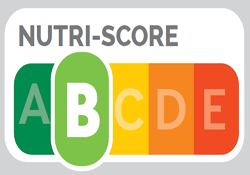The supermarket conducted the study with Inbox in order to determine the impact of the voluntary nutrient logo, which was chosen as France’s official nutrient logo in October last year.
The study analysed the purchasing behaviour of 300,000 consumers who used the supermarket’s e-commerce site between 1 February 2018 and 30 April for almost 1.4 million purchasing occasions.

The researchers divided the consumers into three different groups – those exposed to the NutriScore logo, those exposed to the competing NutriMark logo and those shown products with no nutrition logo at all – and then tracked their clicks.
The researchers found that consumers with access to NutriScore nutritional information bought healthier products compared to NutriScore and no logo at all, with an average score of 1.91 compared to 2.12 according to the evaluation method as the UK’s Food Standards Agency.
It found that the effect on food choices is stronger for people from lower socio-economic groups, according to criteria established by France’s National Institute of Statistics and Economic Studies, INSEE.
NutriScore also had a “very strong” impact on younger consumers under 30.
The Nutriscore has already been rolled out across the retailer’s private label Marque Repère mobile app and now appears on the pages for more than 3,000 products (out of a total of 5,400 which includes personal care and household items).
The retailer said it would appear on the packaging of all its Marque Repère food products by 2020.
E.Leclerc was one of the stakeholders that participated in a trial period where several nutritional logos, including the NutriMark, were tested.
Since the logo was officially launched, a few manufacturers have begun to add it to their products, such as Fleury Michon and Danone Fresh and supermarkets Intermarché, E.Leclerc and Auchan – but uptake has not been widespread.
